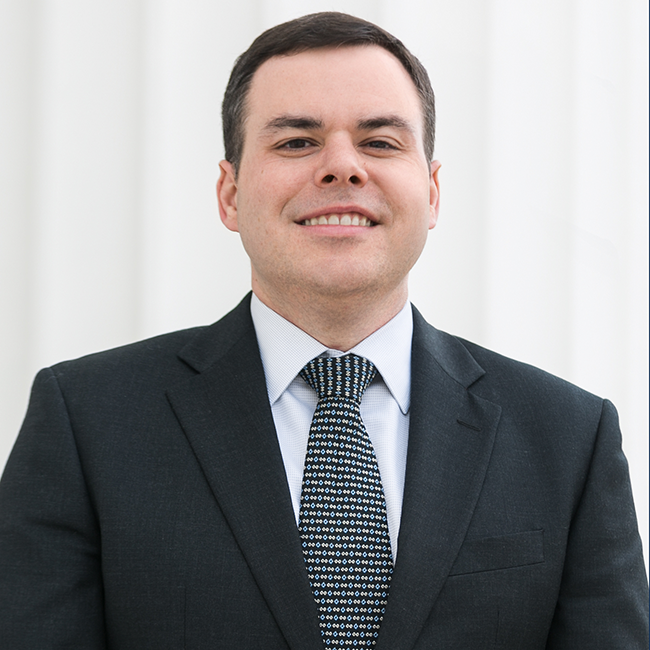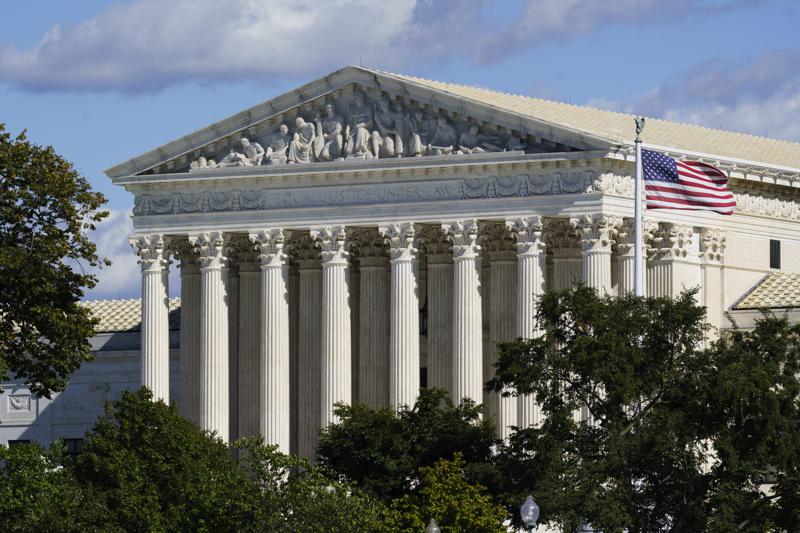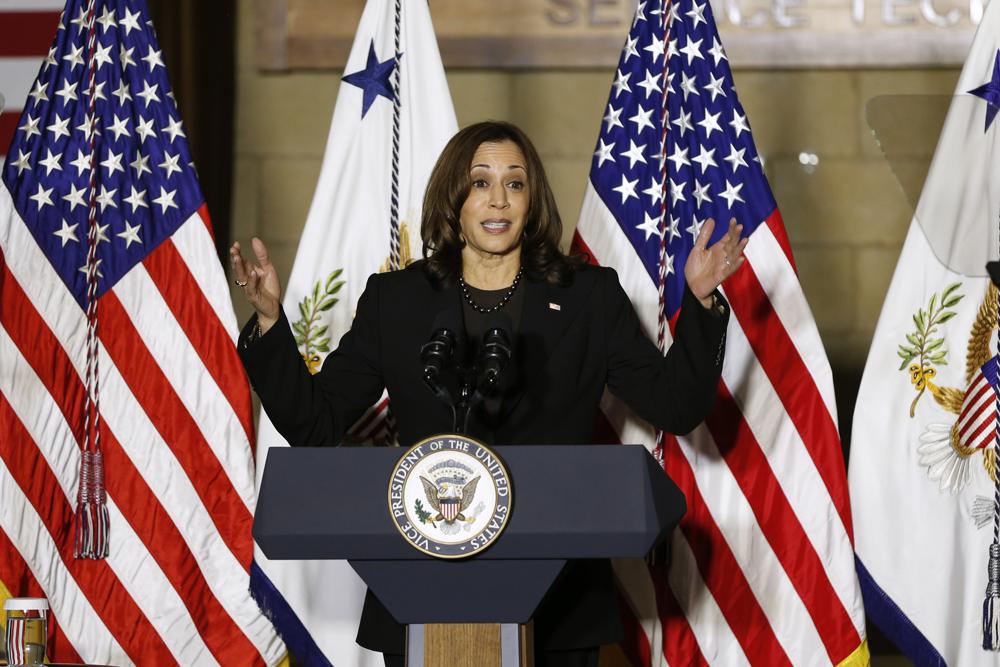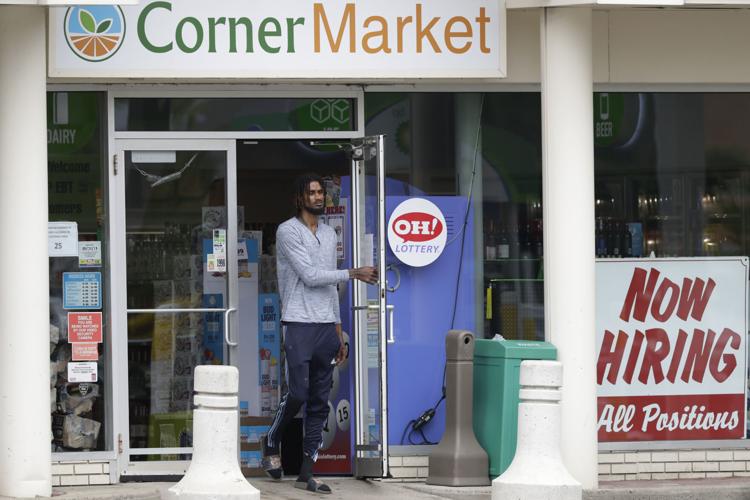Justin Bogie: Alabama lawmakers must choose the people over bigger government

Despite the pandemic, the business of state government is booming in Alabama. It is past time for the state to give some of its newfound wealth back to citizens. A recent court ruling should pave the way for Alabama’s elected officials to do so if they choose to. But lawmakers already missed one opportunity. To recap, in March, Congress passed a second massive COVID-19 stimulus bill, the American Rescue Plan Act (ARPA). Alabama’s state government has already received half of its $2.1 billion allotment from the bill and will receive the second half early next year. So far, the state has committed $480 million of its ARPA funds, with the bulk of that going towards prison construction projects. In total, state government alone has been handed $4 billion in federal stimulus funds since the start of the pandemic. In addition to the stimulus money, the state saw $1.2 billion in new revenue flow into the state in 2021. Most of that money has been reinvested in the public sector. A controversial provision of ARPA blocked states from being able to cut taxes and then use stimulus funds to replace lost revenue. In response, 13 states, including Alabama, sued the Treasury Department, arguing that the federal government had no Constitutional authority to dictate state tax policy. On November 15th, U.S. District Court Judge L. Scott Coogler issued a permanent injunction against the provision, writing that the restriction is “a federal invasion of State sovereignty.” Coogler further wrote that the mandate pressures states into adopting federally preferred tax policy and disincentivizes states “from considering any tax reductions for fear of forfeiting ARPA funds.” The bottom line is that the federal court ruling clears the way for Alabama to use its ARPA funds for tax relief. It also proves that elected officials missed an opportunity to provide relief much sooner. Alabama received $1.8 billion from the Coronavirus Aid, Relief, and Economic Security Act (CARES) in 2020. In June of last year, the Alabama Policy Institute (API) presented a proposal to Governor Kay Ivey that would have set aside a portion of the state’s CARES funding to implement an extended statewide sales tax holiday. If the proposal had been adopted, it would have saved citizens money and provided a much-needed boost to Alabama’s brick and mortar businesses during the heart of the pandemic. Before presenting the proposal, API commissioned an outside legal opinion that determined a sales tax holiday was a permissible use of CARES Act funds. Ultimately the governor’s office refused to implement the sales tax holiday, hiding behind U.S. Treasury guidance that said the money couldn’t be used to replace lost revenue. However, other states, like Idaho, went full speed ahead with measures to reduce citizens’ tax burden. The federal government never intervened. If state government wanted to use CARES Act funds to provide a sales tax holiday, it likely would have been allowed. But the desire to use the money to grow government outweighed the need to help struggling citizens and businesses. While we as citizens cannot change past government actions, we can demand better for the future. There are a number of ways that Alabama’s government could use ARPA funds to help the citizens and business owners of this state. API believes that an extended sales tax holiday would still provide benefits to both, but there are other ways. Alabama is one of just three states that fully taxes grocery and food items, something that every person living here relies on. The stimulus funds would go a long way towards permanently eliminating that tax burden. Because of a rise in unemployment claims over the last two years, employers are now paying more in unemployment compensation tax than they were before the pandemic. In 2021 the employer tax rate increased by 92 percent, adding additional strain to businesses already hit hard by COVID-related shutdowns. The state could use ARPA funds to reduce unemployment taxes in 2022. The state has more than $1.5 billion in remaining ARPA funds at its disposal. To put that in perspective, it is enough money to eliminate unemployment taxes for up to six years. It could wipe out the grocery tax for three years. That’s not including this year’s $1.2 billion revenue windfall. Regardless of the method, Alabama citizens deserve tax relief. A federal court has already ruled that Washington cannot tell Alabama and other states how to use that money. If lawmakers fail to provide tax relief to the citizens of Alabama, it is because they chose government over the people they are elected to serve, not because they can’t. Justin Bogie is the Senior Director of Fiscal Policy for the Alabama Policy Institute.
Kay Ivey awards $480,000 to assist low-income residents

Alabama Department of Economic and Community Affairs (ADECA) announced today that Gov. Kay Ivey has awarded funds totaling $480,000 to assist community action agencies in Alabama with programs aimed at helping lift people out of poverty. The Community Action Agencies Association of Alabama is using $450,000 to provide support to 19 Community Action Agencies across Alabama. These programs offer assistance to low-income residents to help with things like GED testing fees, food assistance, and rental or utility assistance. $30,000 will go to the Community Action Partnership of North Alabama to support a program that provides food to low-income senior citizens and disabled individuals in Marion and Winston counties. Ivey stated, “By assisting those most in need, community action agencies can provide a path to a better life for many families and individuals. As we celebrate Thanksgiving this week, we are also reminded how important it is to help those in need. I am pleased to provide these funds to these agencies who work every day to give those who need a helping hand to improve their lives and lift themselves out of poverty.” The Alabama Department of Economic and Community Affairs administers the grants from funds allocated by the Legislature in the Alabama General Fund budget. ADECA manages programs that support law enforcement, workforce development, energy conservation, water resource management, economic development, and recreation. “ADECA is proud to support Gov. Ivey’s efforts to improve the lives of some of our most vulnerable residents,” ADECA Director Kenneth Boswell said. “Our partnerships with these agencies across the state continue to make an impact.”
Mississippi loses Supreme Court water fight with Tennessee

A unanimous Supreme Court on Monday rejected a claim that the Memphis, Tennessee, area has been taking water that belongs to Mississippi from an underground aquifer that sits beneath parts of both states. The high court’s first decision of the term came in a case argued in October, deflating expectations that the justices would resolve the issue of whether Texas’ ban on most abortions could be challenged in federal court. Two cases on the Texas issue were argued on November 1 under an accelerated process that the court has previously used only rarely and in some of its most notable decisions, including the Bush v. Gore case that settled the 2000 presidential election. But those cases remain unsettled. Instead, Chief Justice John Roberts wrote for the court in an interstate water dispute that reaches back to 2005. The Supreme Court has long embraced the concept of a fair share in state fights over rivers and streams, a legal doctrine known as equitable apportionment. Mississippi, though, “contends that it has sovereign ownership of all groundwater beneath its surface, so equitable apportionment ought not apply. We see things differently,” Roberts wrote. Although the water source at issue, in this case, is water from hundreds of feet below the surface, Roberts wrote that “we see no basis for a different result.” Tennessee Attorney General Herbert H. Slatery III praised the decision. “We now have some finality. It’s a clear victory for Tennessee on all issues, and for all states who share underground water resources,” Slatery said in a statement. Republished with the permission of the Associated Press.
Paul DeMarco: Governor Kay Ivey popularity still high as deadline to challenge approaches soon

While we are now less than six months away from the Republican Party Primary on May 24, 2022, so far Governor Kay Ivey does not have a candidate who would appear to mount a serious challenge to her reelection. There have been grumblings from some circles about her conservative credentials and open discussions about who may throw their hat in the ring for the state’s top executive spot. The two names mentioned most prominently have been businessman Tim James and Senate candidate Lynda Blanchard. Both would have the financial resources for a race, but with the qualifying deadline the end of January, both will have to make a decision soon. There is still time for someone to qualify against the governor, but a poll released by Morning Consult this past week should give Ivey a boost of confidence. The polling showed that Ivey was ranked eighth in the Nation as one of the most popular governors in the Nation. With a 62 percent job approval, she also tops all other governors in the Southeast. Throughout her term as governor, Ivey has always enjoyed a high level of support from state voters. Her strong standing has remained, despite her taking on some of the most controversial issues during the pandemic and the tough economic times. Now politics in Alabama can change on a dime, so while this is good news for Ivey, we do not know what the future may hold before next year’s elections. Paul DeMarco is a former member of the Alabama House of Representatives
William Haupt III: Nancy Pelosi’s home district is a progressive nightmare

“Nancy Pelosi’s district in California has rapidly become one of the worst anywhere in the U.S. when it comes to the homeless and crime. It has gotten so bad, so fast.” – Donald Trump In the 1960s, America’s boomers rebelled against authority and the Vietnam War. They pursued sexual liberation, experimental drugs, communal living, and civil rights. This counterculture lived by the motto “sex, drugs, rock and roll.” In 1967, thousands of hippies and flower children made their way to Haight-Ashbury in San Francisco for what was billed as the “Summer of Love” – and many never left. Haight-Ashbury soon eroded into an enclave for dropouts, addicts, and the homeless. In the late 1970s, the area was targeted for gentrification, and investors began cleaning it up. By 1990, Haight-Ashbury was among San Francisco’s most affluent and expensive neighborhoods. But today, it is home to tent cities with trash-ridden streets ravaged with violent crime, and it is a Mecca for drug users and sellers. Conditions are worse than slums in almost every other U.S. city. How can the most expensive place to live in America also be one of the worst places to live in the U.S.A.? While San Francisco has been the most progressive city in America for years, this liberal utopia has not always been a harbor for addicts, the homeless, criminals, and social derelicts. “It’s an odd thing, but anyone who disappears is said to be seen in San Francisco.” – Oscar Wilde In the 1960s, liberal strategist Phillip Burton saw the potential of growing the Democratic Party by pandering to the hippies, minorities, and gays. With their support, he was elected to the U.S. House in 1964, where he served until his death in 1983. His wife Sala Burton held this seat until 1987. In a special election, Nancy Pelosi seized this coveted progressive prize in 1987 and won’t give it up. With the election of far-left liberal Gov. Jerry Brown in 2010, San Francisco became a progressive paradise. In 2014, Brown financed Prop 57, which helped free thousands of California inmates from prison. Voters also approved Prop 47, which reduced most nonviolent crimes, including theft under $950 to misdemeanors. Both were pushed by Lt Governor Gavin Newsom, San Francisco district attorney George Gascón, the San Francisco Democratic Party, and the Harvey Milk LGBT Club. In 2016, voters approved Prop 64, giving municipalities the power to ban or sell weed. But many cities and counties did not react. A 2011 federal court had ruled that local governments trying to regulate the sale of weed would violate federal law. But it was welcomed by all San Franciscans. By 2019, the deregulation of crime, release of thousands of inmates, legalization of cannabis, and declaring California a sanctuary state enabled new Gov Gavin Newsom, the former mayor of San Francisco, to clone the entire state of California into a progressive twin sister of San Francisco. San Francisco has declared the NRA a “domestic terrorist organization,” banned fast-food joints that include toys in children’s meals, outlawed plastic bags and straws, raised the minimum wage from $9.79 to $15.59 an hour, and refuses to prosecute anyone for nonviolent crimes. While these policies appeal to the far left, they also encourage the homeless and derelicts to venture up north. How bad are things in San Francisco? According to a KGO news report, in 2011, the Bay City spent $157 million on the homeless. By 2016, it was up to $242 million. In the 2021 budget proposal, it is now over $364 million. The consensus estimates the homeless population is at least 17,500. “As mayor of San Francisco, I witnessed its greatest cultural and social transition.” – Gavin Newsom Progressives insist the stark contrast in wealth and poverty is the result of the failure of capitalism to provide for the needy. But while politicians preach “compassion,” their policies have resulted in record-high levels of homelessness, drug addiction, and a rapid increase in violent felonious crime. According to the San Francisco Chronicle, the city’s policies have created an “influx of about 450 homeless people a year who migrate to places like the Tenderloin District. This is a sanctuary for people hiding out from the law who do not want the government to know where they are living. In reaction to the George Floyd and Black Lives Matter protests and riots, along with outrage by activists against police, San Francisco elected progressive Chesa Boudin as district attorney of San Francisco in 2020. He was endorsed by Angela Davis, Bernie Sanders, and Ibram X. Kendi. Boudin, the adopted son of radicals Bill Ayers and Bernardine Dohrn, quickly reduced the use of cash bail and restrained the power of the police. He quit prosecuting misdemeanors. He then did the unthinkable and started charging police officers with felonies who used force during arrests. “I will move away from the draconian, tough-on-crime, three-strike super-rhetoric hype.” – Chesa Boudin According to Stop Crime, the Bay City is experiencing a dramatic increase in serious crime under Boudin. Burglaries are up 42%, and homicides have increased 30% compared to the previous year. Motor vehicle thefts have risen by 71%, and arsons have jumped over 35% since he became DA. Recently, a local ABC News reporter witnessed a shoplifter sweeping entire shelves of products into garbage bags inside a Walgreens. He mounted a bike and rode past a security guard out the door. Other retail stores are reporting the same problems in every neighborhood in San Francisco. “This rise in crime is a result of Chesa Boudin’s soft-crime policies.” – Frank Noto, Victim’s Rights It’s been said that “The road to hell is paved with good intentions.” All good intentions of Prop 47 and Prop 57 have been undone by Chesa Boudin’s leftist extremism, pandering to criminals, and punishing the police for doing their job. What’s happening in San Francisco is proof of how quickly perjured progressive idealism can turn an economically prosperous city into a living hell on earth. It is hard
Kamala Harris announces $1.5B investment in health care workforce

Vice President Kamala Harris announced Monday that the Biden administration is investing $1.5 billion from the coronavirus aid package to address the health care worker shortage in underserved communities. The funding will go to the National Health Service Corps, Nurse Corps and Substance Use Disorder Treatment and Recovery programs, all federal programs that offer scholarship and loan repayments for health care students and workers if they pledge to work in underserved and high-risk communities. “Our nation must invest in a health care workforce that looks like America, and provide access to equitable health care for all Americans,” Harris said. The money, which includes funds from the American Rescue Plan and other sources, will support more than 22,700 providers, marking the largest number of providers enrolled in these programs in history, according to the White House. It comes in response to recommendations laid out earlier this month by the White House’s COVID-19 Health Equity Task Force, which issued a report outlining how the administration could address systemic inequality in the health care system. The COVID-19 pandemic has both highlighted and exacerbated health care disparities for minority and underserved communities. According to an analysis by the Kaiser Family Foundation, over the course of the pandemic, minority Americans have seen higher numbers of cases and higher rates of death than their white counterparts. “COVID-19 did not invent health disparities. Just ask any healthcare professional and she will tell you: Health disparities existed long before this virus reached our shores. Health disparities stem from broader systemic inequities,” she said. It’s just the latest investment from the $1.9 trillion American Rescue Plan, passed in March of this year, aimed at addressing health disparities among minority and underserved communities. Earlier this month, the White House announced an additional $785 million in funding for federal programs aimed at improving diversity in the public health workforce and supporting people with disabilities. During the Monday event, Harris pushed for passage of President Joe Biden’s nearly $2 trillion social safety net and climate change package, which would provide funding to temporarily close the Medicaid coverage gap and expand access to health insurance marketplace subsidies through 2025. Harris said the package would also make a historic investment in maternal health “to address the tragedy of black maternal mortality in America.” Black women in the U.S. are about three times as likely to die from a pregnancy-related cause as others, partly because of racial bias they may experience in getting care and doctors not recognizing risk factors such as high blood pressure. Republished with the permission of the Associated Press.
Poll: Americans more concerned about economy, government than COVID

Americans are more concerned about government than they are about COVID-19, a new poll indicates. The Gallup poll released Monday found that 26% of Americans cite an economic issue as the country’s most important problem. The poll reports that 21% of Americans name “the government/poor leadership” as the nation’s top problem, while 13% say it is COVID-19. Meanwhile, concern about the economy is at the highest level since the pandemic began. Inflation and unemployment are leading causes for concern among Americans, the poll found. Inflation is at the top of 7% of Americans’ list, while 5% of Americans feel the same about unemployment. “It has been more than 20 years (April 2001) since inflation was named as the most important problem by at least 7% of Americans,” Gallup said. “The last time mentions of inflation were significantly higher than now was in May 1985 when it registered 11%.” Gallup found that 70% of Americans believe the economy is getting worse, not better. “Gallup’s Economic Confidence Index, which measures Americans’ assessments of current U.S. economic conditions and whether the economy is getting better or worse, is -29 in November,” the group said. “The current reading is similar to October’s -25 score, as well as the -33 registered in April 2020, the worst so far during the pandemic. Economic confidence has improved at various points in the pandemic but has not been able to sustain the improvement for long.” Those economic fears play into the larger political divide as Congress considers nearly $2 trillion in additional social spending. The plan passed the U.S. House along party lines last week and is now before the Senate, where Democrats cannot afford to lose a vote. One major hindrance to the Democratic plan has been inflation, cited by swing voter U.S. Sen. Joe Manchin, D-W.V., as a key reason for his hesitancy to support the plan. It seems many Americans share that concern. A recently released Politico/Morning Consult poll found that 43% of Americans believe Joe Biden’s bill will make inflation worse, despite the administration’s claims that it will actually improve inflation. Federal debt spending increases inflation because more money is printed to help offset the cost and pay debt obligations. Republicans have also pointed to inflation in their opposition to the Democrats’ plan. “Only Democrats would cheer the passage of a bill that saddles Americans with more debt, taxes, and inflation,” said U.S. Rep. Andy Biggs, R-Ariz. “They’re in for a rude awakening come 2022.” By Casey Harper | The Center Square Republished with the permission of The Center Square.


